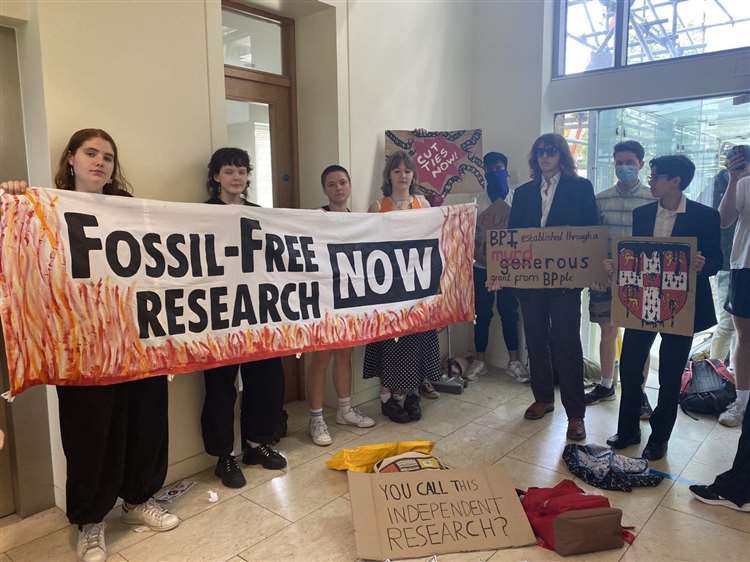It’s college application season again and many high school seniors are stressing over finding a trustworthy college or university to further their education. However, if you or someone you know are a prospective college student and you care about climate change, you might want to reconsider applying to universities who receive money from fossil fuel companies.
In 2023, the three universities that received the most amount of funding from fossil fuels are:
- University of California-Berkeley, $154, 302, 577
- University of Illinois Urbana-Champaign, $108, 221, 802
- George Mason University, $63, 935, 218
Some other notable mentions include Stanford University ($56 million), Massachusetts Institute of Technology ($40 million), Harvard University ($21 million), Florida State University ($11 million), and more.
What does this mean?
Universities typically use different sources of funding for a wide variety of things such as supplies, curriculum support, and research. BP, ExxonMobil, and Shell (the top fossil fuel companies that contribute to universities) donate solely for research purposes, as long as the research done by the university does not negatively impact the companies. For about 10 years, donations from these fossil fuel companies have been kept a secret by the universities receiving the funding. In early 2023, university financial data was published and for the first time included the fossil fuel funding amount. This caused a backlash.
Background information
Fossil fuels are non-renewable energy sources, such as natural gas and coal, and are one of the biggest contributors to global warming. The more gas people use for filling up their cars, heating their homes, or running electricity, as well as companies needing fossil fuels for their manufacturing, the more companies like BP and Shell, need to produce. This causes many negative effects on the environment like rising sea levels, hotter ocean temperatures, global warming, resource depletion, and pollution.
The negative effects
Fossil Fuel companies fund various universities to research and support curriculum that focus on fossil fuels. A result of this funding is that fossil fuel companies then influence the research and education being done at those universities.
The Campus Climate Network, formerly named Fossil Free Research, stated, “Today, the fossil fuel industry has employed disinformation tactics, working to sow doubt about climate science, silence industry critics, and stall climate action.”
According to the Associations of American Universities, research universities conduct thirty-one percent of the nation’s research, so research from UC Berkeley or Harvard could bring about inaccurate results. Research in general, can sometimes be disproved, but climate change is a fact and so the research funded by fossil fuel companies may have manipulated results that favor the very companies that are causing climate change.
At many universities, education and research go hand in hand. The LA Times explained, “By funding academic research, especially around climate change, the fossil fuel industry diverts attention from these activities and their devastating consequences.”
At these universities, academic research, specifically climate-related, is influenced by the fossil fuel industry from the funding, thus making the research and corresponding education sway in their favor. Those against fossil fuel funds to academia are concerned that students who study science would not have a true education or opportunity to research climate change accurately because of the fossil fuel influence.
What does this mean for the future?
As climate change worsens and people continue to ignore it, the fossil fuel companies may end up doing irrevocable damage to Earth as well as distorting the education system. These companies target top science programs at universities like Stanford or UC Berkeley, who in return, receive millions of dollars in funding and then are contractually bound to that company. This may result in an academic environment that may be biased, which can cause top-tier education to dissipate.
What does this mean for applicants?
For those who are applying to the universities mentioned above, do not worry, you are not going to make climate change worse. Unfortunately, most of the top universities in the United States accept funding from fossil fuels. Many students at these universities have spoken to administrators about ending funding from fossil fuels, so, hopefully, universities will see less fossil fuel funding in universities in the future.
As Campus Climate Network, a non-profit organization of various college students, said: “But we are not letting them get away with this anymore. Students and faculty want to make their universities sites of innovation and breeding grounds for real climate solutions. We want to create the future we want and deserve, not help destroy it. So we are kicking Big Oil out of schools.”



